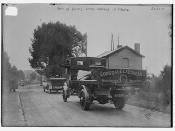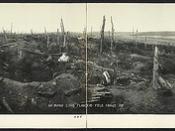In this essay, a small number of similarities and differences between Canada and a foreign country (Austria) will be examined and discussed. The purpose of this is to gain knowledge into the foreign country (Austria) as well as to show political and cultural similarities and contrasts between two essentially non-connected countries.
The War of 1812 / The War of Liberation
In 1812, conflict broke out on the Canada/US border. Angered by the British harassment of U.S. vessels and by its interference in U.S. expansion plans, a number of influential congress members known as the "War Hawks" argued strongly for war against Britain. They claimed victory would be quick and easy.
It was neither. The war was not actually a war, nor was there an actual victor. British forces, working together with volunteer militia units, successfully held the American forces at bay. Ironically enough, most of the volunteer militia consisted of recent U.S.
immigrants, who chose to fight their so-called liberators.
In the end, with both parties weary of war, the U.S. and Canada agreed to an armistice. The official documents were signed on Christmas Eve, 1814.
The War of Liberation however, was fought for much different reasons. Prince von Metternich was convinced that the only way to keep the Habsburg monarchy secure was to keep the balance of power in Europe stable. When he saw Napoleon was pressing for war again, he decided that the only way to keep the balance stable was to attack France. So, in August 1813, Austria formally declared war on France.
In the ensuing War of Liberation, Austria played the leading role, providing both troops and commanders. Metternich did not seek to vanquish Napoleon completely, as this would tip the scales in Russia's favor. However, he could not convince Napoleon of his beliefs,


